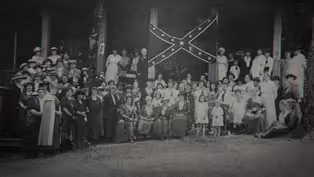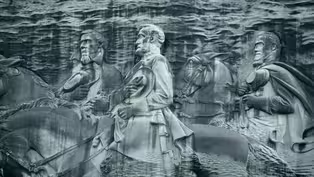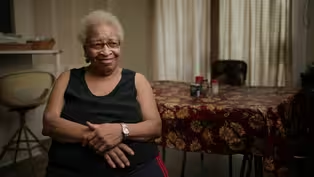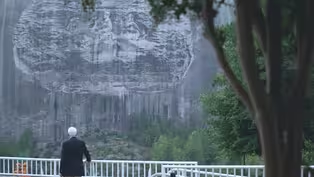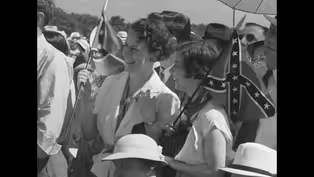
Meet Stone Mountain Memorial Association's Black Chairman
Clip: Episode 7 | 5m 38sVideo has Closed Captions
The head of Stone Mountain Memorial Association discusses plans for the monument's future.
“I don’t see the carving being removed… I don’t see pleasing everybody because you’re not going to please everybody. I’d rather be agitating on the inside than be on the outside looking in." - Rev. Abraham Mosely, Chairman of the Stone Mountain Memorial Association, discusses plans for the future that he hopes will alleviate some of the controversy surrounding the Confederate monument.
Problems playing video? | Closed Captioning Feedback
Problems playing video? | Closed Captioning Feedback
Iconic America: Our Symbols and Stories with David Rubenstein is a production of Show of Force, DMR Productions, and WETA Washington, D.C. David M. Rubenstein is the host and executive...

Meet Stone Mountain Memorial Association's Black Chairman
Clip: Episode 7 | 5m 38sVideo has Closed Captions
“I don’t see the carving being removed… I don’t see pleasing everybody because you’re not going to please everybody. I’d rather be agitating on the inside than be on the outside looking in." - Rev. Abraham Mosely, Chairman of the Stone Mountain Memorial Association, discusses plans for the future that he hopes will alleviate some of the controversy surrounding the Confederate monument.
Problems playing video? | Closed Captioning Feedback
How to Watch Iconic America
Iconic America is available to stream on pbs.org and the free PBS App, available on iPhone, Apple TV, Android TV, Android smartphones, Amazon Fire TV, Amazon Fire Tablet, Roku, Samsung Smart TV, and Vizio.
Buy Now
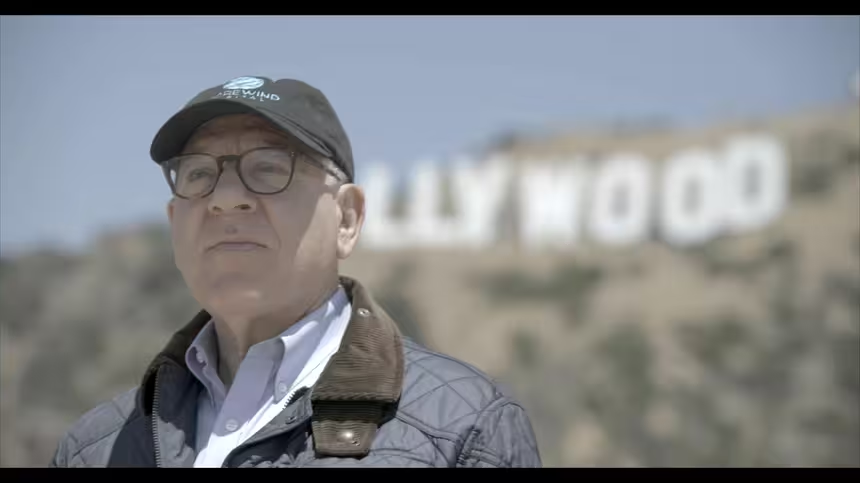
Our Symbols and Stories
David Rubenstein examines the history of America through some of its most iconic symbols, objects and places, in conversation with historical thinkers, community members and other experts. Together, they dive deep into each symbol’s history, using them as a gateway to understanding America’s past and present.Providing Support for PBS.org
Learn Moreabout PBS online sponsorship(soft music) - The last few years, what I've observed is that people actually want that carving off.
They feel that it's an insult to Black people but my opinion, what's done has been done.
- I would like for it to be presented different, and I think that they should explain the men on the carving and said what they did.
But since it's not presented different, I'd accept just like it is but I think the generations that come sit behind me, they just won't.
They won't stand for it.
- I've not come to this park in decades.
I won't support this park in any way, shape, or form until significant changes are made.
This marker reads, "The vast majority of those who fought and died for the Southern Confederacy had little in worldly goods or comforts.
They fought for a principle, the right to live life in a chosen manner.
This dedication to a cause drove them to achieve a moment of greatness, which endures to this day."
What goes through my mind is, just this sense of not belonging.
All of this represents a period of time when people thought that I was less than a whole human.
It brings about a sense of, of just despair.
- I don't understand what the feeling is.
Heroes, monuments, memorials are supposed to find the positive aspects in people and raise those up for our emulation.
If you take Dr. King for example, when I went to the King Center a couple times, I've never seen any mention about his plagiarism.
We know from his best friend, Reverend Ralph David Abernathy's autobiography that he cheated on his wife all the time, even though he was a minister.
That's not in the King Center, and it shouldn't be in the King Center because that's not the purpose of the King Center.
The purpose of these things is to find the best in people and emphasize that.
- There's a problem here when we are still characterizing a group that rebelled against the United States as some sort of romanticized heroes.
I think that most people realize that the time has come for the Confederacy to get out of Stone Mountain Park.
As to the carving, if nature took its course, then it would wind up looking like a relic or a ruin.
- What's gonna happen with it?
I don't know.
I think it's all been dumped in the chairman of the board's lap.
(gentle gospel music) - [David] So, the current governor of Georgia appointed you to the Stone Mountain Memorial Association, is that correct?
- [Abraham] Yes.
- And do you think that's because of the events of George Floyd and so forth, they thought it might be a good idea to have a Black person be the chairman of that association?
- I would hope that wasn't the reason.
Our governor, he's my friend, you know?
And been friend for years, for almost 40 years.
- Okay.
- And I was somewhat surprised, but I was honored.
(soft gospel music) ♪ Listen up ♪ ♪ Lil' Johnny Brown ♪ ♪ Tryin' to get home ♪ ♪ Tryin' to get home ♪ - So, as the preacher of your church in Athens, Georgia, when you became the head of the Stone Mountain Memorial Association, did some of your congregants say, "What are you doing that for?"
(Abraham laughs) - I've got members saying, "I'm not coming back," you know?
- And they didn't come back?
- I hadn't seen them, so... - [David] Wow.
- But my, my thing is this, what are you coming for in the first place?
Amen.
(group applauding) Let the church say, "Amen."
- [Group] Amen.
Say, "Amen," again.
- What do you think about the effort to get rid of the carvings on Stone Mountain?
- I don't see the carving being removed.
You're talking about 42 feet deep in that rock.
Our plans are to move the Confederate flag at the base of the mountain.
We are planning on putting in an exhibit at Memorial Hall telling the whole story about Stone Mountain.
I don't see pleasing everybody, because you're not gonna please everybody.
I would rather be at the table, on the inside, than be on the outside looking in.
(dramatic music) - My opinion, Mosley is missing an opportunity.
Dragging your feet and really not showing that you have a true commitment to change is what we are seeing.
An Alternative Rationalization for the Civil War
Video has Closed Captions
Clip: Ep7 | 3m 2s | Hasan Jeffries explains why some Southerners try to reframe the causes of the Civil War. (3m 2s)
Confederate Monuments as a Constant Reminder of Separatism
Video has Closed Captions
Clip: Ep7 | 27s | Poet Laureate Tracy K. Smith discusses Stone Mountain's psychological toll on Black people (27s)
Pushback in the Immediate Aftermath of Integration
Video has Closed Captions
Clip: Ep7 | 23s | Gloria Brown discusses the unfulfilled promises of integration. (23s)
Video has Closed Captions
Preview: Ep7 | 31s | Should Confederate leaders remain on places like Stone Mountain, or should they be erased? (31s)
United Daughters of the Confederacy's Lost Soldiers
Video has Closed Captions
Clip: Ep7 | 1m 59s | United Daughters of the Confederacy had a pivotal role memorializing Confederate soldiers. (1m 59s)
Providing Support for PBS.org
Learn Moreabout PBS online sponsorshipSupport for PBS provided by:
Iconic America: Our Symbols and Stories with David Rubenstein is a production of Show of Force, DMR Productions, and WETA Washington, D.C. David M. Rubenstein is the host and executive...
